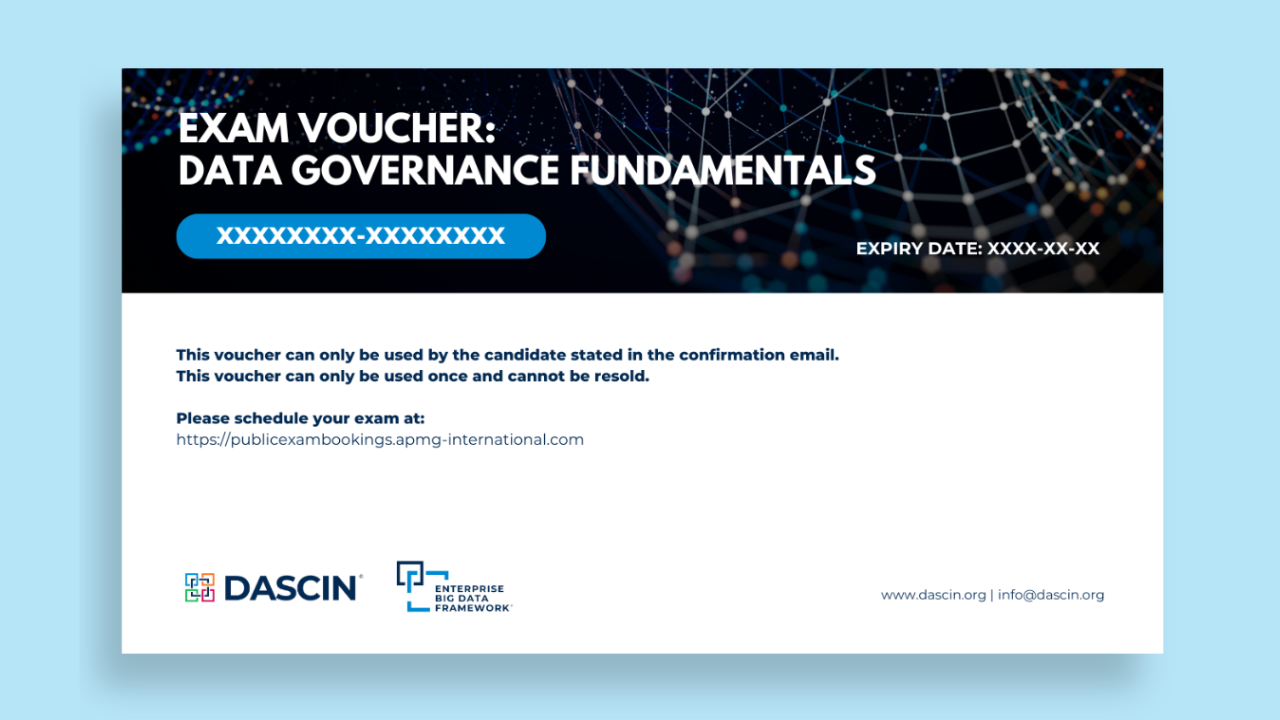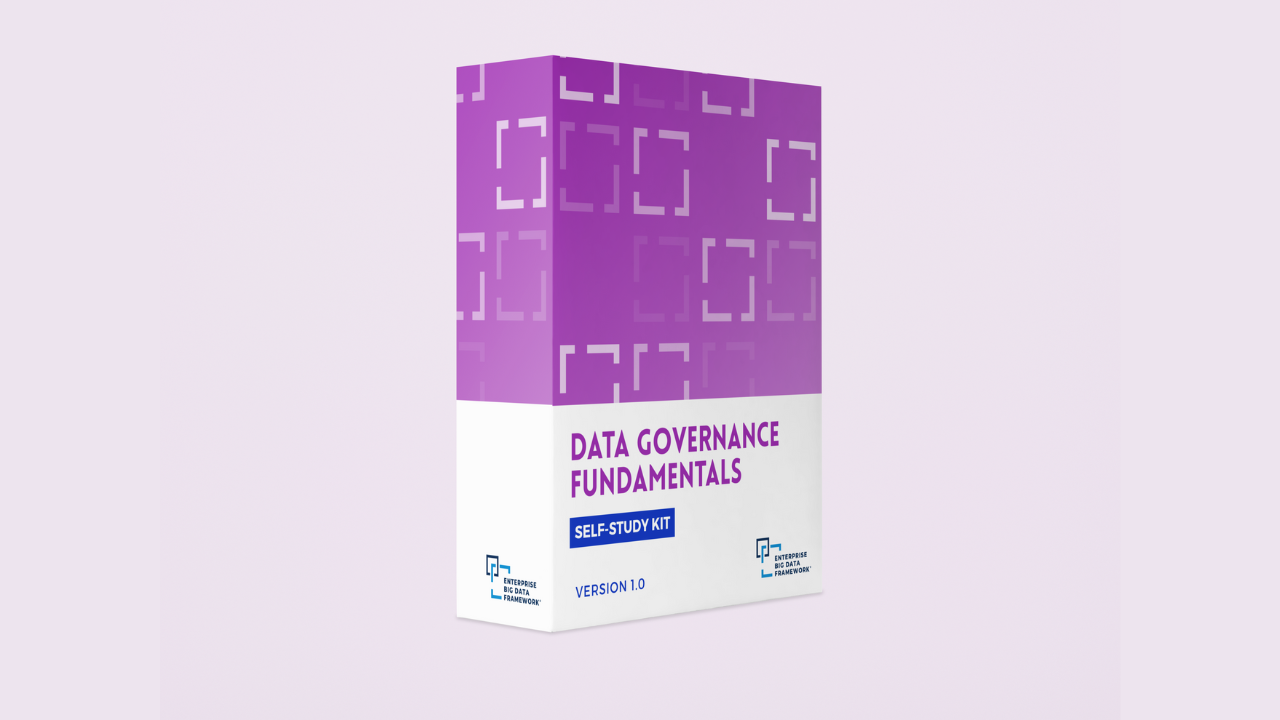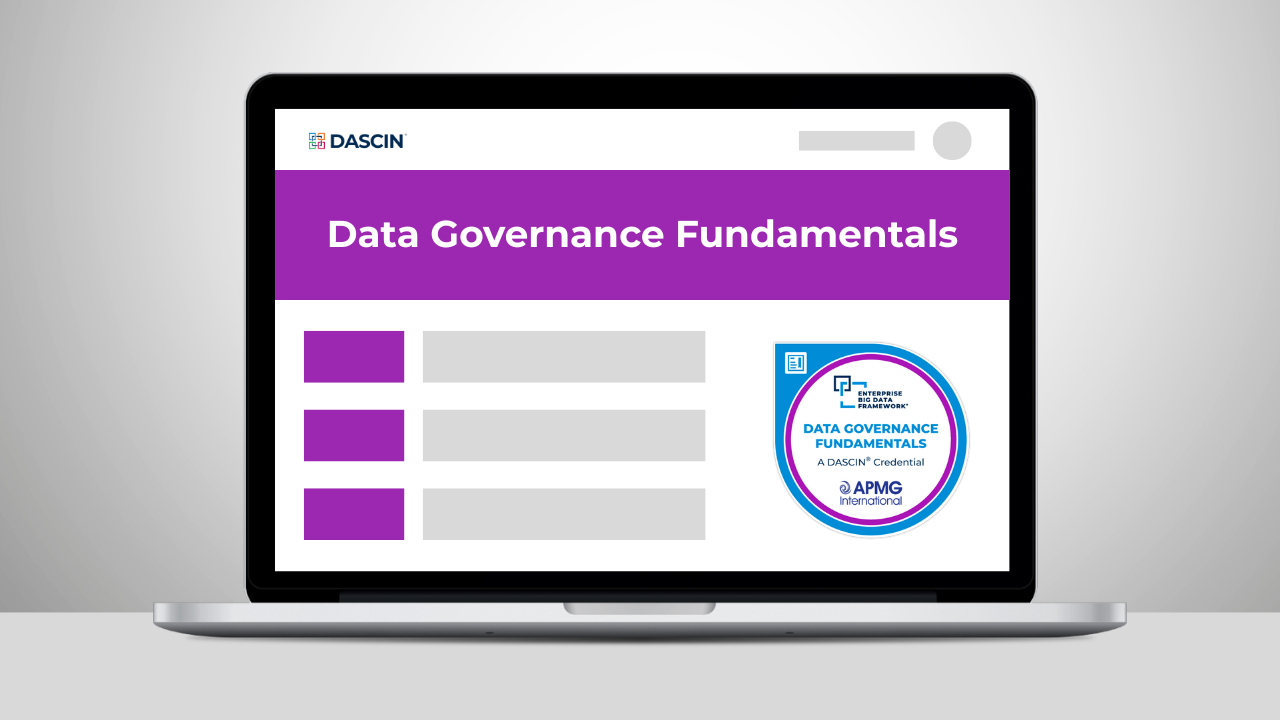Course Summary
The Data Governance Fundamentals course provides a comprehensive introduction to the core principles, practices, and tools required to manage organizational data effectively. Designed for professionals seeking to enhance their understanding of data governance, this course covers key topics such as framework design and implementation, data quality management, security, privacy, and compliance. Participants will explore the foundational concepts of data governance and learn how to align governance frameworks with organizational objectives to ensure data is accurate, secure, and compliant with regulations.
Through a combination of theoretical insights, practical case studies, and hands-on exercises, participants will gain a deep understanding of designing and implementing data governance frameworks. They will delve into best practices for maintaining data quality, managing data risks, and ensuring security and privacy in compliance with industry standards and privacy regulations. The course also examines real-world applications of data governance across industries, providing actionable insights for managing governance challenges in diverse environments.
In addition, learners will explore data governance tools and technologies, including strategies for selecting and implementing solutions that support organizational goals. By the end of the course, participants will be well-prepared to design, implement, and manage data governance frameworks, ensuring that data serves as a secure and reliable asset for decision-making. This course also positions participants to successfully complete the Data Governance Fundamentals Certification Exam, equipping them with the skills needed to navigate today’s data-driven business landscape confidently.
detailed course Information
The learning objectives of the Data Governance Fundamentals course include:
- Understanding Data Governance: Gain a comprehensive understanding of the key concepts, terminology, and importance of data governance, including its role in ensuring effective data management, quality, and security within an organization.
- Data Governance Frameworks: Learn how to design and implement data governance frameworks that align with organizational goals and objectives, focusing on principles, best practices, and standards to ensure consistency and compliance.
- Data Security and Privacy: Understand the importance of data security and privacy, including best practices for safeguarding sensitive data, complying with privacy regulations, and mitigating data-related risks across the organization.
- Data Quality Management: Explore strategies and techniques for improving data quality, including data profiling, cleansing, and validation processes, to ensure reliable and accurate data for decision-making and operations.
- Practical Applications of Data Governance: Discover how data governance is applied across industries through case studies and hands-on exercises, gaining insight into real-world challenges and solutions in diverse organizational settings.
- Data Governance Tools and Technologies: Learn about the tools and technologies available to support data governance efforts, including how to evaluate, select, and implement the right solutions to meet organizational needs effectively.
These learning objectives are designed to equip participants with the knowledge and skills to establish, manage, and optimize data governance frameworks. By completing the Data Governance Fundamentals course, professionals will be empowered to ensure data quality, security, and compliance while driving value for their organization in today’s data-driven world.
The Data Governance Fundamentals course is a structured, interactive program designed to provide a comprehensive foundation in data governance practices. The course is divided into distinct modules, each focusing on key elements of data governance and delivered through engaging sessions designed for practical application.
Module 1: Introduction to Data Governance
- Overview of data governance and its role in effective data management
- Understanding key terminology and concepts in data governance
- Exploring the strategic importance of data governance in today’s organizations
Module 2: Data Governance Frameworks
- Designing and implementing a data governance framework aligned with organizational goals
- Key principles and best practices for successful framework development
- Understanding the roles and responsibilities of data governance stakeholders
Module 3: Data Security and Privacy
- Best practices for safeguarding sensitive data and mitigating risks
- Overview of data privacy regulations and compliance requirements
- Strategies for ensuring data security across the organization
Module 4: Ensuring Data Quality
- Techniques for assessing, monitoring, and improving data quality
- Processes for data profiling, cleansing, and validation
- Methods to ensure data accuracy, completeness, and consistency
Module 5: Data Governance in Practice
- Real-world case studies demonstrating the application of data governance
- Hands-on exercises for designing governance policies and resolving challenges
- Exploring the impact of effective governance on business outcomes
Module 6: Data Governance Tools and Technologies
- Overview of tools and technologies that support data governance initiatives
- Strategies for evaluating, selecting, and implementing governance solutions
- Leveraging technology to streamline governance processes and enhance compliance
This course equips participants with the knowledge and skills to design, implement, and manage robust data governance frameworks, ensuring data quality, security, and compliance. With practical insights and actionable strategies, the Data Governance Fundamentals program empowers professionals to drive value and innovation through effective governance practices.
The Data Governance Fundamentals course is designed for professionals involved in data governance, management, or compliance, as well as those seeking to establish effective governance frameworks to ensure data quality and security. The target audience includes:
- Data Governance Professionals: Individuals responsible for designing, implementing, and maintaining governance frameworks, ensuring compliance with regulations, and overseeing data policies and practices within their organizations.
- Data Stewards: Professionals who manage specific datasets, ensuring their quality, integrity, and security throughout their lifecycle while supporting governance objectives.
- Data Managers and Analysts: Those tasked with overseeing data management practices or analyzing data to support organizational decision-making, who need to understand the role of governance in ensuring reliable, high-quality data.
- IT and Security Professionals: Individuals involved in maintaining the infrastructure, security, and integration of data systems who require an understanding of governance frameworks to align technical practices with organizational policies.
- Compliance Officers: Professionals who work to ensure adherence to data privacy regulations, industry standards, and organizational policies, and who need to understand the role of governance in regulatory compliance.
- Business Leaders and Decision Makers: Managers, executives, and leaders seeking to understand how effective data governance supports strategic decision-making, operational efficiency, and regulatory compliance.
- Anyone Interested in Data Governance: Individuals from any industry or role who want to develop foundational knowledge in data governance principles, tools, and best practices to support their professional growth.
This course is ideal for professionals at any stage of their career who are looking to strengthen their knowledge of data governance, whether to enhance their organization’s governance strategies or advance their own expertise in managing data effectively.
The Data Governance Fundamentals course culminates in an official APMG examination, designed to assess participants’ understanding of core data governance concepts. This structured evaluation ensures that learners have acquired the foundational knowledge needed to confidently design and implement effective data governance frameworks. Below are the key details of the examination:
- Material Allowed: This is a closed-book exam. No study materials, including the course guide, are permitted during the examination.
- Exam Duration: The exam duration is 60 minutes. For candidates taking the exam in a language other than their native or working language, an additional 25% of time is provided, extending the duration to 75 minutes.
- Marks and Scoring: The exam comprises 40 multiple-choice questions, each worth 1 mark. There is no negative marking, and unanswered questions do not earn marks. To pass, participants must score at least 26 marks (65%). A higher pass mark of 30 marks (75%) is required for individuals aiming to become certified trainers.
- Complexity: The questions range across Bloom’s Levels 1, 2, and 3. Level 1 focuses on recalling basic facts and definitions, such as identifying key components of a governance framework. Level 2 involves understanding and explaining concepts, like differentiating data governance from data management. Level 3 assesses the ability to apply knowledge in practical scenarios, such as recommending tools for improving data quality.
This examination validates that participants have developed a solid foundation in data governance, equipping them to apply their knowledge effectively in organizational contexts and advance their careers as data governance professionals.
Digital Badge

Course Details
Testimonials & Course Reviews
I’ve been struggling to make sense of data governance frameworks, and this course broke it down perfectly. It’s clear, practical, and straight to the point. I walked away with actionable ideas that I’ve already started using. Highly recommend it!
I had no idea how much we were missing until I took this course. From data quality management to privacy regulations, it gave me a solid understanding of how to implement governance practices. It was worth every minute.
This course taught me how to connect the dots between data management and governance. The examples and case studies were incredibly helpful. It’s given me the confidence to take on more responsibility at work.
I liked the content overall, but I wish there had been more hands-on exercises or case studies specific to finance. That said, the section on data privacy regulations was excellent.
As someone with a bit of background in data management, I was worried this would be too basic, but it turned out to be a great mix of beginner and advanced content. The insights into data stewardship were especially helpful.
The instructors did a fantastic job of making complex topics easy to understand. The module on creating a governance framework aligned perfectly with what I’m working on right now.
I enrolled in the Data Governance Fundamentals course hoping to brush up on the basics, but what I got was so much more. The course strikes a good balance between theoretical concepts and practical applications, which is rare in online training programs.
The modules are well-structured and build upon each other seamlessly. I especially appreciated how the course started by laying the foundation of data governance and then gradually introduced more advanced concepts like regulatory compliance, data stewardship, and creating governance frameworks. The real-world examples were particularly good. They weren’t just generic case studies but felt highly relevant to the challenges we face in the banking sector.






